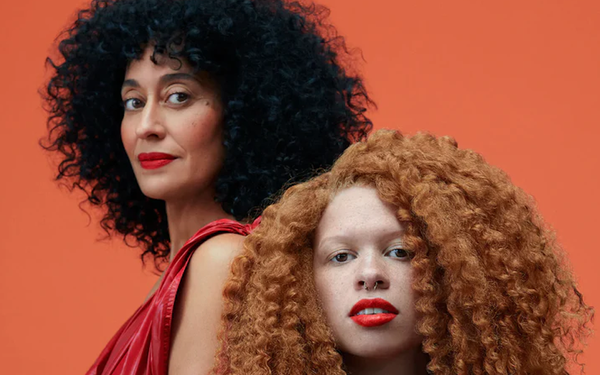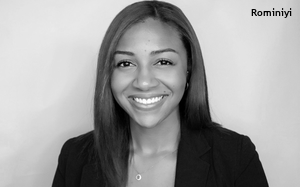beauty
Commentary
Black Brands Shine In February -- Retailers Should Think About The Rest Of The Year
- by Sarah Mahoney , Staff Writer @mahoney_sarah, February 7, 2023

Pattern Beauty recently launched at Macy's
Every February, consumers get flooded with messages from national retailers about Black History Month. Stores like Target, Walmart, Sephora, Nordstrom and Macy's are eager to show how many Black brands, designers and suppliers they work with.
How well are they doing? To outsiders, it's almost impossible to tell. Courtney Rominiyi, multicultural consumer insights analyst at Mintel, the market research company, explains.
Marketing Daily: Every February, we get slammed with announcements about tie-ins with Black brands -- particularly beauty brands. How much of an impact do these efforts have?
Courtney Rominiyi: Many Black consumers do prefer Black beauty brands. That's primarily because most of them are owned and operated by a person of color. Even if the company is ultimately sold to a larger brand, like Procter & Gamble's recent acquisition of Mielle Organics, Black consumers feel like the product is made for them, specifically. That's especially true for hair, makeup and skincare products. And founders have done a good job of being transparent about the methods they use to create their products.
advertisement
advertisement
Marketing Daily: Do these partnerships help brands expand their reach?
Rominiyi: There's been a bit of controversy about who the target market is. Just because the owner is Black doesn't necessarily mean the consumer has to be. And there's a consumer preference to support brands owned and operated by Black individuals.
But most Black brands are smaller, limiting how many people they can reach. That's their challenge: What's the best move to stay Black-owned, yet increase their reach?
Marketing Daily: That's tricky because their smallness is part of their appeal, right?
Rominiyi: Many black consumers do appreciate Black-owned brands because of that quaint small business feel. It feels like something tailored to them -- not just something created for the masses. And it's difficult to scale that.
Marketing Daily: Tabitha Brown for Target is an example of a collaboration that's doing well. It's got broad reach, and there have been several collections. What's the appeal?
Rominiyi: Everyone loves Tabatha Brown. She is relatable and personable, and people are just naturally inclined to support her business. I think that has less to do with celebrity status and more with her generosity. Many Black-owned brands have been successful by being genuine in this way and transparent.
Rihanna is another example. She's done a lot with candid conversations, making sure she stays the face of the brand [Fenty Beauty].
Both are very clear about their purpose and their intentions. Black consumers -- and consumers in general -- appreciate that.

Marketing Daily: In 2020, people began talking about The
Fifteen Pledge, started by activist Aurora James. The premise is simple. Since people of color account for about 15% of the U.S. population, national retailers should strive for 15% Black-owned
brands. It's not a statistic many retailers share, but my sense is we are miles away from that.
Rominiyi: It's a movement in the right direction, and the concept is noble.
Marketing Daily: What letter grade would you give retailers on fully incorporating Black-owned brands?
Rominiyi: I'd give them a C. I think they have to be clearer about their goals. Do they want representation? Or to have products for everyone? We're making progress, but there's still a little fog.
I don't think retailers need to limit themselves to Black brands large enough to be sold at mass, either. There are other ways they could support these companies without putting them on their shelves. They could advocate for these brands. They could tell their shoppers, "Here are brands we don't stock but that many of our customers love."
Marketing Daily: How else could they improve?
Rominiyi: It would help if efforts were ongoing, not just limited to one month a year.
Marketing Daily: What are some Black-owned brands you think are doing well?
Rominiyi: Tabitha Brown. Mielle Organics. It got a lot of criticism for the P&G acquisition, but I think it will be able to stay true to the brand and extend its reach. Bevel, which is a men's grooming brand.
Marketing Daily: Which large retailers are doing a good job working with Black-owned brands?
Rominiyi: I don't have an answer. Many people would say Target, but I'm still waiting to see how these partnerships play out long-term.





